It’s a bit like a Succession-style corporate drama 🍿.
Over the past few years, we’ve covered stories surrounding Chinese beverage giant Wahaha (娃哈哈) several times — and with good reason.
Since the passing of its much-beloved founder Zong Qinghou (宗庆后) in March 2024, the company has been caught in waves of internal turmoil.
Some context: Wahaha is regarded as a patriotic brand in China — not only because it’s the country’s equivalent of Coca-Cola or PepsiCo (they even launched their own cola in 1998 called “Future Cola” 非常可乐, with the slogan “The future will be better” 未来会更好), but also because its iconic drinks are tied to the childhood memories of millions.
There’s also the famous 2006 story when Zong Qinghou refused a buyout offer from Danone. Although the details of that deal are complex, the rejection was widely seen as Zong’s defense of a Chinese brand against foreign takeover, contributing to his status as a national business hero.
After the death of Zong, his daughter Zong Fuli, also known as Kelly Zong (宗馥莉), took over.
🔹 But Zong Fuli soon faced controversy after controversy, including revelations that Wahaha had outsourced production of some bottled water lines to cheaper contractors (link).
🔹 There was also a high-profile family inheritance dispute involving three illegitimate children of Zong Qinghou, now living in the US, who sued Zong Fuli in Hong Kong courts, claiming they were each entitled to multi-million-dollar trust funds and assets.
🔹 More legal trouble arrived when regulators and other shareholders objected to Zong Fuli using the “Wahaha” mark through subsidiaries and for new products outside officially approved channels (the company has 46% state ownership).
⚡️ The trending news of the moment is that Zong Fuli has officially resigned from all positions at Wahaha Group as chairman, legal representative, and director. She reportedly resigned on September 12, after which she started her own brand named “Wa Xiao Zong” (娃小宗). One related hashtag received over 320 million views on Weibo (#宗馥莉已经辞职#). Wahaha’s board confirmed the move on October 10, appointing Xu Simin (许思敏) as the new General Manager. Zong remains Wahaha’s second-largest shareholder.
🔹 To complicate matters further, Zong’s uncle, Zong Wei (宗伟), has now launched a rival brand — Hu Xiao Wa (沪小娃) — with product lines and distribution networks nearly identical to Wahaha’s.
As explained by Weibo blogger Tusiji (兔撕鸡大老爷), under Zong Qinghou, Wahaha relied on a family-run “feudal” system with various family-controlled factories. Zong Fuli allegedly tried to dismantle this system to centralize power, fracturing the Wahaha brand and angering both relatives and state investors.
Others also claim that Zong had already been engaged in a major “De-Wahaha-ization” (去娃哈哈化) campaign long before her resignation.
In August of this year, Zong gave an exclusive interview to Caijing (财经) magazine where she addressed leadership challenges and public controversies. In the interview, Zong spoke more about her views on running Wahaha, advocating long-term strategic growth over short-term results, and sharing her determination to not let controversy distract her from business operations. That plan seems to have failed.
While Chinese netizens are watching this family brand war unfold, many are rooting for Zong after everything she has gone through – they feel her father left her in a complicated mess after his death.
At the same time, others believe she tried to run Wahaha in a modern “Western” way and blame her for that.
For the brand image of Wahaha, the whole ordeal is a huge blow. Many people are now vowing not to buy the brand again.
As for Zong’s new brand, we’ll have to wait for the next episode in this family company drama to see how it unfolds.
By Manya Koetse
(follow on X, LinkedIn, or Instagram)
Spotted a mistake or want to add something? Please let us know in comments below or email us. First-time commenters, please be patient – we will have to manually approve your comment before it appears.
©2025 Whatsonweibo. All rights reserved. Do not reproduce our content without permission – you can contact us at info@whatsonweibo.com.
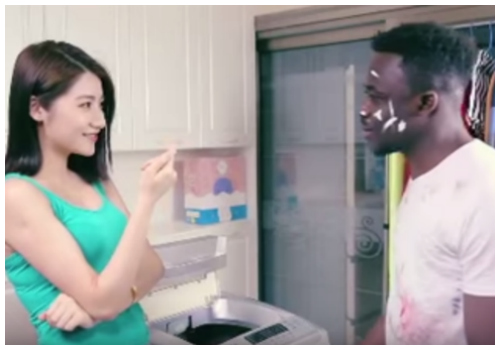

 China Memes & Viral3 months ago
China Memes & Viral3 months ago
 China Books & Literature12 months ago
China Books & Literature12 months ago
 China Insight6 months ago
China Insight6 months ago
 China Memes & Viral10 months ago
China Memes & Viral10 months ago




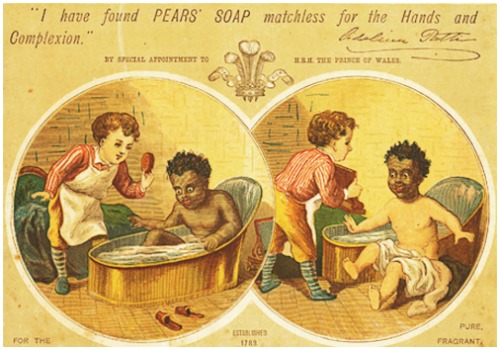

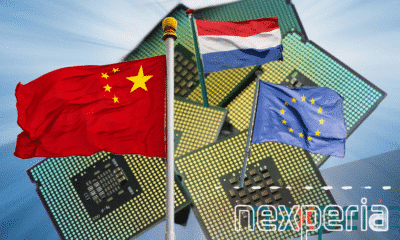



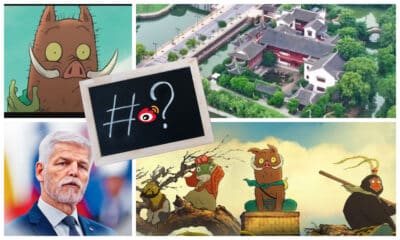


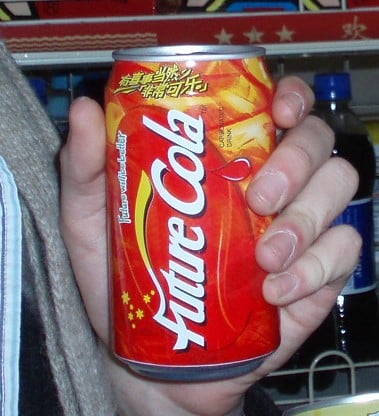












Diandian GUO
May 26, 2016 at 8:00 pm
I think the racist reading of this ad departs completely from a western mentality, western referring to countries with history of slavery, colonization and other related activities. Discrimination against coloured people is a highly sensitive issue in some western societies exactly because of the historical relevance, because of self-reflection on past activities.
However the discourse of race is not so much dominant in China, especially concerning people black skins, because historically Chinese interaction with African people are scarce. By the time China established amiable diplomatic relations with newly independent African countries in the 1960s, African people were depicted as a kind-hearted friend of Chinese people.
As a Chinese saying goes: what is not in the speaker’s intention is in the hearer’s mind (说者无意听者有心). For Chinese, turning black skin into light one shows preference to the latter (which cannot be excluded from western influence and has not been existing forever). It does not mean that Chinese people are racist or tolerant of racism, but that the racist discourse does not register that sensitively, given that the society has no apparent motive to fight against racial discrimination.
On the whole, the popularity of this video on English media is more a reflection of western mentality than a reaction to Chinese mentality.
By the way, believing black is dirty is old fashioned, since people normally associate dark skin with the mud they got from field work. There is perhaps not so awful many black people in China for the general public to really get used to black as a natural skin colour, so they tend to explain from their own experiences. Discrimination from ignorance, I believe, is slightly different from intentional discrimination.
J
May 27, 2016 at 2:41 am
Most discrimination (if not all) is based on ignorance. It’s no excuse.
Alternatively, how would you react if the ad depicted a white woman luring an Asian man into a washing machine for him to turn into a white man?
Qflux
May 27, 2016 at 8:34 am
People seemed fine with the white loser getting transformed into a black god. Cheered it on really. The *only* issue was ironically that they said “colored”. If they had skipped that and said “women don’t like pale pathetic little losers” instead of “women prefer coloured” it would have won awards (although fitting that tag line into a laundry context would be a trick)
Qflux
May 27, 2016 at 8:38 am
Chinese were discriminating based on skin tone while “white people” still lived in caves.
Dark skin = works in sun = poor.
Fair skin = always shaded = rich
Sometimes it’s that easy, sorry. Although I know the reflex to blame “the West” for 150,000 years of human histories issues while simultaneously stripping credit for anything positive coming from “the West” because of all of that prior history is a well developed one.
Rebecca Webb
May 28, 2016 at 3:51 am
Diandian GUO,
I absolutely agree with you!
Ondra
May 27, 2016 at 6:20 am
The supposed commercial from Czechia is not a commercial – it’s a political satire reacting to increased xenophobic sentiments in mid-1990s. The brand is called “Arijec” (Aryan), resembling P&G’s Ariel brand.
Manya Koetse
May 27, 2016 at 7:54 am
Well noted, thank you, I’ve removed this example now. For those interested, this is a link to the satire: https://www.youtube.com/watch?v=Dkn-dlcSCEo.
Qiu
May 29, 2016 at 9:51 am
What do you mean by “China’s” commercial. If Walmart makes a racist commercial would you label it as “America’s Completely Racist Commercial”??
On one hand you are acting like a SJW and denouncing the commercial (which I agree is fucking racist.), but on the other hand you just generalized one fucked up company’s behavior to the entire country.
Dan
August 14, 2016 at 7:34 pm
Don’t worry white people the Chinese don’t like you either.